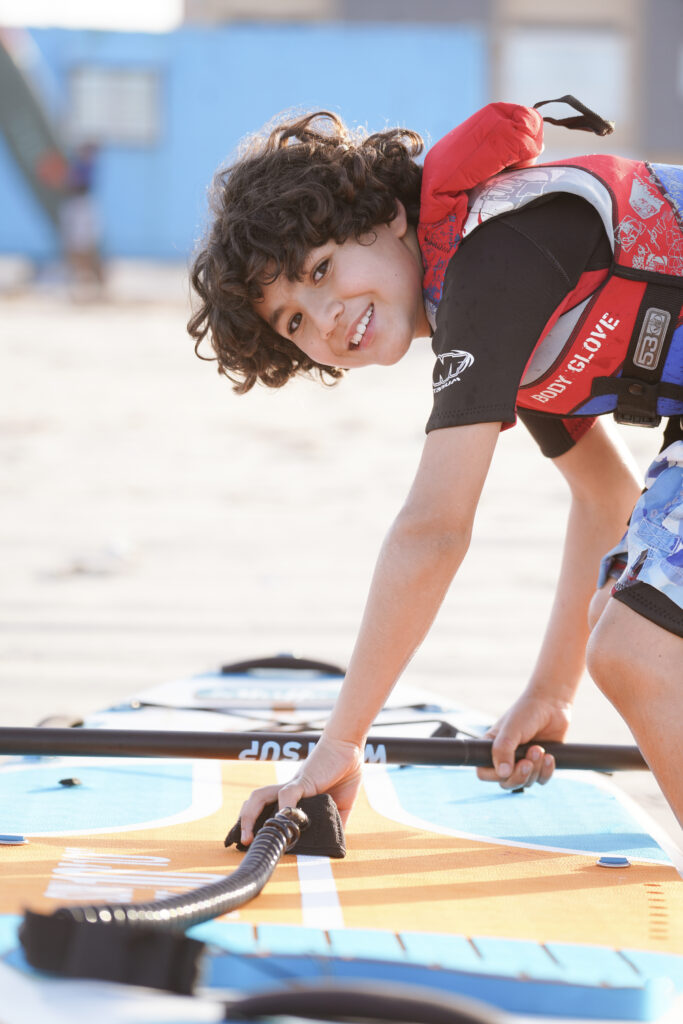Are you ready to embark on your next travel adventure? Whether you’re jetting off to a tropical paradise or exploring a bustling city, it’s important to prioritize your safety and health while on the go. In this article, we’ll share some valuable tips and tricks to help you stay safe and healthy throughout your travels. From packing the right essentials to staying vigilant in unfamiliar surroundings, we’ve got you covered. So get ready to make the most of your journey, while also taking care of yourself along the way. Let’s dive in!

Choosing a Safe Destination
When planning your next trip, it’s important to consider the safety of your destination. Researching the safety of potential destinations is an important first step to ensure a smooth and secure journey. Look for reliable sources such as government travel advisories and reputable travel websites to gather information about the safety conditions in different countries or regions.
Checking travel advisories and warnings is essential to stay informed about any potential risks or dangers in your chosen destination. Government travel advisories provide up-to-date information on safety concerns such as political instability, natural disasters, or health risks. It’s crucial to take these advisories into account and make an informed decision about whether to proceed with your travel plans or consider alternative destinations.
Getting Vaccinated and Health Check-ups
Before embarking on your trip, it’s essential to prioritize your health and well-being. Consulting a travel health clinic is highly recommended, as they specialize in providing medical advice tailored to the specific requirements of travelers. These clinics can provide information on required and recommended vaccinations based on your destination, as well as advice on preventive measures to take.
Reviewing and updating routine vaccinations is crucial to ensure you’re up to date with all necessary immunizations. Common routine vaccinations include measles, mumps, rubella, tetanus, and influenza. It’s also important to consider additional vaccinations such as hepatitis A and B, typhoid, or yellow fever, depending on your chosen destination.
Taking medications and preventive measures is crucial to staying healthy while traveling. If you have any existing medical conditions, ensure you have an adequate supply of medications to last the duration of your trip. Additionally, consider packing insect repellents, sunscreen, and any necessary over-the-counter medications for common travel illnesses such as diarrhea or motion sickness.

Pack Smart for Safety
Organizing important documents is essential for a safe and hassle-free trip. Make sure to keep your passport, identification cards, and travel documents in a secure and easily accessible place. It’s also important to make copies of these documents and store them separately from the originals in case of loss or theft.
Carrying emergency contact information is crucial in case of any unforeseen circumstances. Keep a list of emergency contact numbers for local authorities, your embassy or consulate, as well as your travel insurance provider. It’s also a good idea to share your itinerary and contact details with a trusted family member or friend back home.
Securing travel insurance is a wise decision to protect yourself against any unexpected events during your trip. Travel insurance provides coverage for medical emergencies, trip cancellations, lost or stolen belongings, and other travel-related mishaps. Ensure you carefully read and understand the terms and coverage of your policy before embarking on your journey.
Packing a first aid kit is essential to handle minor injuries and illnesses while traveling. Include items such as bandages, antiseptic ointments, pain relievers, antihistamines, and any necessary prescription medications. It’s also beneficial to bring items like insect repellents, sunscreen, and hand sanitizers for added convenience.
Bringing a travel safety kit is an additional precautionary measure to consider. This kit may include items such as a flashlight, a whistle for emergencies, a portable phone charger, a small fire extinguisher, and a travel-sized doorstop for added hotel room security.
Avoiding Theft and Scams
Protecting your valuables and personal belongings is essential to avoid becoming a target for theft. Keep your valuables such as passport, jewelry, and electronic devices secure in a hotel safe or a hidden money belt or pouch. Avoid displaying wealth or expensive items openly, as it can attract unwanted attention.
Using secure luggage and bags is another measure to deter theft. Opt for bags with built-in security features such as slash-proof material, lockable zippers, and RFID-blocking pockets to protect your belongings from being accessed or stolen.
Keeping an eye on your surroundings is crucial to prevent theft or other unwanted incidents. Be aware of your belongings at all times, especially in crowded places or public transportation. Avoid leaving bags or personal items unattended, even for a short period, as it can make you an easy target.
Being cautious of scams and fraudulent activities is important to protect yourself and your finances. Be skeptical of unsolicited offers or requests, especially from strangers. Educate yourself about common travel scams in your destination and be vigilant when approached by strangers offering suspicious deals or services.

Staying Healthy with Hygiene Practices
Maintaining good hygiene practices is essential for staying healthy while traveling. Wash your hands regularly with soap and water for at least 20 seconds, especially before meals or after using public facilities. If soap and water are not available, use a hand sanitizer with at least 60% alcohol content.
Practicing safe food and water consumption is crucial to avoid foodborne illnesses. Be cautious of street food risks, especially in destinations with poor sanitation standards. Opt for well-cooked hot meals and avoid raw or undercooked foods. Drink bottled or purified water to prevent waterborne diseases.
Using bottled or purified water for drinking and brushing teeth is crucial to avoid ingesting harmful bacteria or parasites. Avoid consuming beverages with ice cubes made from tap water. If tap water is deemed safe in your destination, use a water purifier or boil it for at least one minute before consumption.
Dealing with Transportation Safety
Using reliable and licensed transportation is important to ensure your safety while traveling. When using taxis, opt for reputable companies or ask your accommodation provider for recommendations. When using public transportation, be cautious of pickpockets or other petty criminals and keep your belongings secure.
Buckling up and following safety measures is essential when using any form of transportation. Always wear your seatbelt in cars or taxis, regardless of local regulations. Follow safety instructions and guidelines when using other forms of transportation such as buses, trains, or boats.
Checking safety records of airlines and vehicles is a prudent step before booking your transportation. Prioritize airlines or operators with a good safety track record and positive customer reviews. Research the safety standards and protocols of transportation options to ensure they meet your expectations.
Being alert and avoiding drowsy driving is crucial for both your safety and the safety of others on the road. If you’re feeling tired or fatigued, take a break or switch drivers if possible. Avoid driving under the influence of alcohol or drugs, as it significantly impairs your judgment and response time.
Ensuring Accommodation Safety
Choosing safe and secure accommodations is essential for a comfortable and worry-free stay. Research accommodation options and read reviews from previous guests to get an idea of the safety standards and overall experience. Opt for accommodations with good security measures such as CCTV cameras, secure entrances, and well-lit common areas.
Checking room safety features is crucial to ensure your personal safety within your accommodation. Inspect the locks on windows and doors to ensure they are functioning properly. If you have any concerns, notify the hotel staff and request a room change or additional security measures if available.
Using room safes or lockers for valuables is recommended to prevent theft or loss. Store your passport, cash, jewelry, and other valuable items in a secure safe or locker provided by the accommodation. Avoid leaving valuable belongings unattended in your room or visible to others.
Being cautious of fire safety measures is essential for your personal safety within your accommodation. Familiarize yourself with the location of emergency exits and fire extinguishers upon arrival. It’s also important to follow any fire safety instructions or evacuation procedures provided by the accommodation.
Sun and Heat Protection
Applying sunscreen regularly is crucial to protect your skin from harmful UV rays. Choose a broad-spectrum sunscreen with a high sun protection factor (SPF) and apply it generously to all exposed skin. Reapply every two hours, or more frequently if you are sweating or swimming.
Wearing protective clothing and hats is another measure to shield yourself from the sun’s harmful rays. Opt for lightweight, loose-fitting clothing that covers your arms, legs, and neck. Wear a wide-brimmed hat to protect your face, ears, and neck from direct sunlight.
Staying hydrated is essential to prevent heat-related illnesses such as heat exhaustion or heatstroke. Drink plenty of water throughout the day, even if you do not feel thirsty. Avoid excessive alcohol consumption, as it can contribute to dehydration.
Avoiding overexposure to the sun is crucial to prevent sunburn and long-term skin damage. Seek shade or avoid direct sunlight during peak hours, typically between 10 am and 4 pm. If you must spend time outdoors, use umbrellas, canopies, or seek shelter in shaded areas.
Maintaining Personal Safety
Trusting your intuition and being aware of your surroundings is important for personal safety. If something feels off or uncomfortable, trust your instincts and remove yourself from the situation. Be observant of the people around you and any unusual behavior.
Avoiding risky activities is crucial to minimize the chances of accidents or injuries. Consider the potential risks and hazards associated with activities such as extreme sports, water-based activities, or exploring unfamiliar terrains. Always prioritize your safety and choose activities that align with your comfort level and abilities.
Following local laws and customs is essential to staying out of trouble and respecting the culture of your chosen destination. Familiarize yourself with local laws and regulations, including traffic rules and customs. Respect cultural norms, traditions, and etiquette to avoid inadvertently offending locals or causing misunderstandings.
Respecting cultural norms is crucial for fostering positive interactions and experiences while traveling. Be mindful of dress codes and conservative attire requirements in certain destinations. Respect religious sites, monuments, and customs by adhering to any dress codes or behavioral guidelines.
Handling Health Emergencies
Knowing emergency contacts and medical facilities is essential in case of any health emergencies. Save the local emergency contact number in your phone and ensure you know how to access medical assistance in your destination. Research the location of hospitals, clinics, or pharmacies in advance.
Carrying important health information is crucial in case of any medical emergencies. Keep a copy of your health insurance details, any necessary medical records, and a list of any allergies or existing medical conditions. This information will be valuable in case of any health-related incidents or when seeking medical help.
Seeking medical help and insurance coverage is important if you experience any health issues while traveling. If you require medical assistance, contact your travel insurance provider to understand the coverage and assistance they can provide. Seek medical attention from licensed and reputable healthcare providers. Keep all receipts and documentation for future insurance claims.
Dealing with common travel-related illnesses can be more manageable if you are prepared. Research common illnesses in your destination and take necessary precautions to minimize the risk. Carry over-the-counter medications for common ailments such as pain relievers, fever reducers, and remedies for gastrointestinal issues.
In conclusion, staying safe and healthy while traveling requires careful preparation and proactive measures. Researching the safety of potential destinations, ensuring proper vaccinations and health check-ups, and practicing good hygiene are essential steps. Packing smart, avoiding theft and scams, and being cautious of transportation and accommodation safety further contribute to a secure journey. Additionally, taking precautions for sun and heat protection, maintaining personal safety, and handling health emergencies are crucial aspects to consider. By following these guidelines and being mindful of your surroundings, you can enjoy a safe and memorable travel experience.



